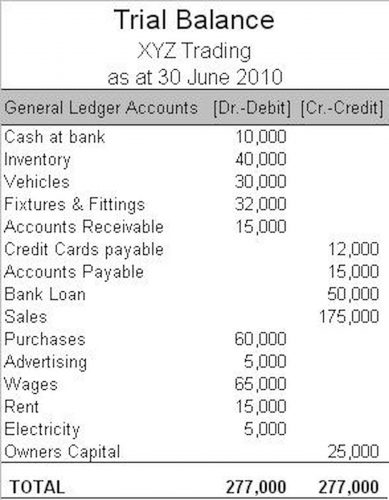Bookkeeping Agost 07, 2023
Cost of Equity Definition, Formula, and Example
Content

For healthy companies, equity value far exceeds book value as the market value of the company’s shares appreciates over the years. It is always greater than or equal to zero, as both the share price and the number of shares outstanding can never be negative. With all of the necessary assumptions set, we can simply divide our shareholders’ equity assumption by the total tangible assets to arrive at an equity ratio of 40%. The equity ratio, or “proprietary ratio”, is used to determine the contribution from shareholders to fund a company’s resources, i.e. the assets belonging to the company. A final type of private equity is a Private Investment in a Public Company (PIPE). A PIPE is a private investment firm’s, a mutual fund’s, or another qualified investors’ purchase of stock in a company at a discount to the current market value (CMV) per share to raise capital.
The longer you pay off your mortgage, the more equity you’ll have in your home. For example, assume an investor offers you $250,000 for 10% equity in your business. By doing so, the investor is https://www.bookstime.com/ implying a total business value of $2.5 million, or $250,000 divided by 10%. Book value and market value are terms that investment bankers and financial analysts use to evaluate companies.
Are there any limitations to using the debt to equity ratio?
Only “accredited” investors, those with a net worth of at least $1 million, can take part in private equity or venture capital partnerships. For investors who don’t meet this marker, there is the option of private equity exchange-traded funds (ETFs). Venture how to calculate total equity capitalists (VCs) provide most private equity financing in return for an early minority stake. Sometimes, a venture capitalist will take a seat on the board of directors for its portfolio companies, ensuring an active role in guiding the company.
- Both LTV and home equity values are subject to fluctuations when the market value of a home changes.
- The information for this calculation can be found on a company’s balance sheet, which is one of its financial statements.
- Furthermore, once the buyer pays off these securities, they convert into additional shares for the buyer, further raising the acquisition cost of the company.
- A PIPE is a private investment firm’s, a mutual fund’s, or another qualified investors’ purchase of stock in a company at a discount to the current market value (CMV) per share to raise capital.
Now, let’s suppose that you had also taken out a $40,000 home equity loan in addition to your mortgage. That changes your total equity to just $15,000, dropping your home equity percentage to 6%. Shareholders’ equity is equal to a firm’s total assets minus its total liabilities.
Cost of Equity Formula
Through years of advertising and the development of a customer base, a company’s brand can come to have an inherent value. Some call this value “brand equity,” which measures the value of a brand relative to a generic or store-brand version of a product. A higher ratio suggests that the company uses more borrowed money, which comes with interest and repayment obligations.
- For most homeowners, it takes around five to 10 years to build up 15% to 20% of home equity.
- That is especially true if you are looking to refinance a mortgage or borrow money against your residence.
- In other words, in case a company decides to pay off all its debts and creditors, then whatever of the business will be left behind is the equity.
- Total assets, current assets and non-current assets are values that are needed to calculate a company’s shareholders’ equity, the result of which is published in a company’s balance sheet.
- Creating and maintaining positive equity shows that you’re generating a profit, running your business responsibly, and reinvesting in your long-term success.
- Current assets consist of cash and other company assets that may be converted to cash within 12 months’ time (or less).
For example, if your home is valued at $200,000 and you still owe $100,000 on your mortgage, you have $100,000 in home equity. Marc is senior editor at CNET Money, overseeing such topics as banking and home equity. He’s been a writer and editor in the financial field for more than two decades, including for such media organizations as The Kiplinger Washington Editors, U.S. News & World Report, Bankrate and Dow Jones. Before joining CNET Money, Wojno was Senior Editor of Finance for ZDNet, writing on blockchain, cryptocurrency, finserv, investing and taxes.
Relevance and Uses of Equity Formula
Indeed, home prices saw global price increases through 2021 due to the stay-at-home policy and people looking for bigger homes to fit their work, schooling, and life. Also, the growing work-from-home policies adopted by companies that might extend beyond COVID have incentivized many families to move to the suburbs from the city. All in all we are at a historic junction for the pandemic and its impact on homes and the future of it is yet to be seen.

Beta is a measure of risk calculated as a regression on the company’s stock price. The higher the volatility, the higher the beta and relative risk compared to the general market. The equity multiple is a real estate returns metric that compares the total cash distributions received by an investor on a property investment to the total capital contribution. Furthermore, once the buyer pays off these securities, they convert into additional shares for the buyer, further raising the acquisition cost of the company.
Market Value of Equity vs Book Value of Equity
It also helps your lender determine whether or not you’ll have to pay for private mortgage insurance (PMI). Unlike public corporations, private companies do not need to report financials nor disclose financial statements. Nevertheless, the owners and private shareholders in such a company can still compute the firm’s equity position using the same formula and method as with a public one.

LEAVE A COMMENT